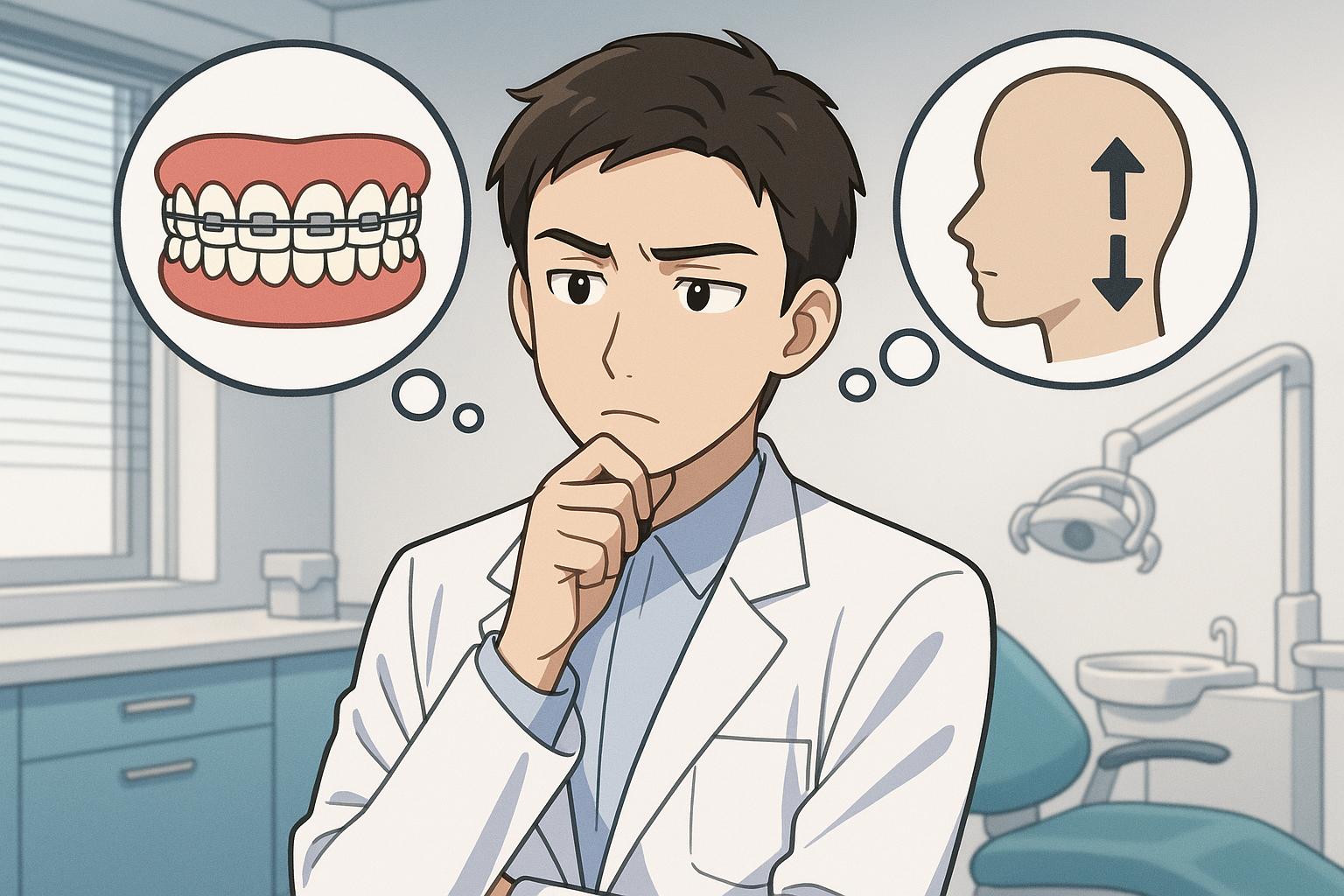The rise of orthotropics—a controversial alternative to traditional orthodontics—has sparked significant debate within the dental community. In an interview highlighting the views of Dr. Mike Mew, a proponent of this treatment method, certain claims, such as the ability to modify facial structure through altered mouth posture, were discussed. While Dr. Mew argues for the potential benefits of orthotropics, feedback from prominent dental associations provides a stark contrast, emphasising the absence of scientific credibility behind these assertions.
The British Orthodontic Society has categorically stated that there is no evidence supporting the notion that patients can fundamentally change their facial shape or improve cognitive function through orthotropic methods. Furthermore, claims such as “craniofacial dystrophy” are dismissed as lacking basis in established dental science. This skepticism is echoed internationally, with organisations like the New Zealand Association of Orthodontists advising against treatment options that promise significant alterations in facial structure or jaw function.
Dr. Mo Al-Dujaili, a practising orthodontist, has voiced concerns about orthotropics, pointing to issues such as increased treatment costs and the potential for decreased effectiveness over traditional methods. He stresses that rigorous, evidence-based practices should be at the forefront of dental care, urging patients to consider proven orthodontic techniques instead. The call for caution is further amplified by the experiences of patients who report lengthy treatment times with questionable outcomes when exploring orthotropic methodologies.
The implications of using unverified therapies extend beyond individual experiences; they can undermine public trust in dental professionals. With Dr. Mew himself having been struck off by the General Dental Council, his position has raised alarms regarding the regulation of such practices. Many within the dental profession argue that it is misleading to refer to Dr. Mew as an orthodontist, given his contentious standing and the nature of his proposals.
Moreover, numerous critiques highlight the importance of consulting registered specialist orthodontists for care that prioritises safety and reliability. Both the British Orthodontic Society and the New Zealand Association of Orthodontists urge patients to seek second opinions before committing to any treatment modality that lacks robust scientific validation. Their joint message is clear: the most effective remedial approaches for malocclusion and related issues lie firmly within established orthodontic practices which are subject to rigorous standards and training.
In a field where patient well-being is paramount, the responsible dissemination of accurate information is crucial. The dental community’s consensus on the dubious nature of orthotropics serves as a vital reminder of the need for evidence-based practice in healthcare. As the conversation continues to evolve, the importance of critical evaluation of all treatment options remains essential for both patients and practitioners alike.
Reference Map:
- Paragraph 1 – [1], [2], [5]
- Paragraph 2 – [3], [2]
- Paragraph 3 – [4], [6]
- Paragraph 4 – [1], [5]
- Paragraph 5 – [2], [3]
Source: Noah Wire Services
